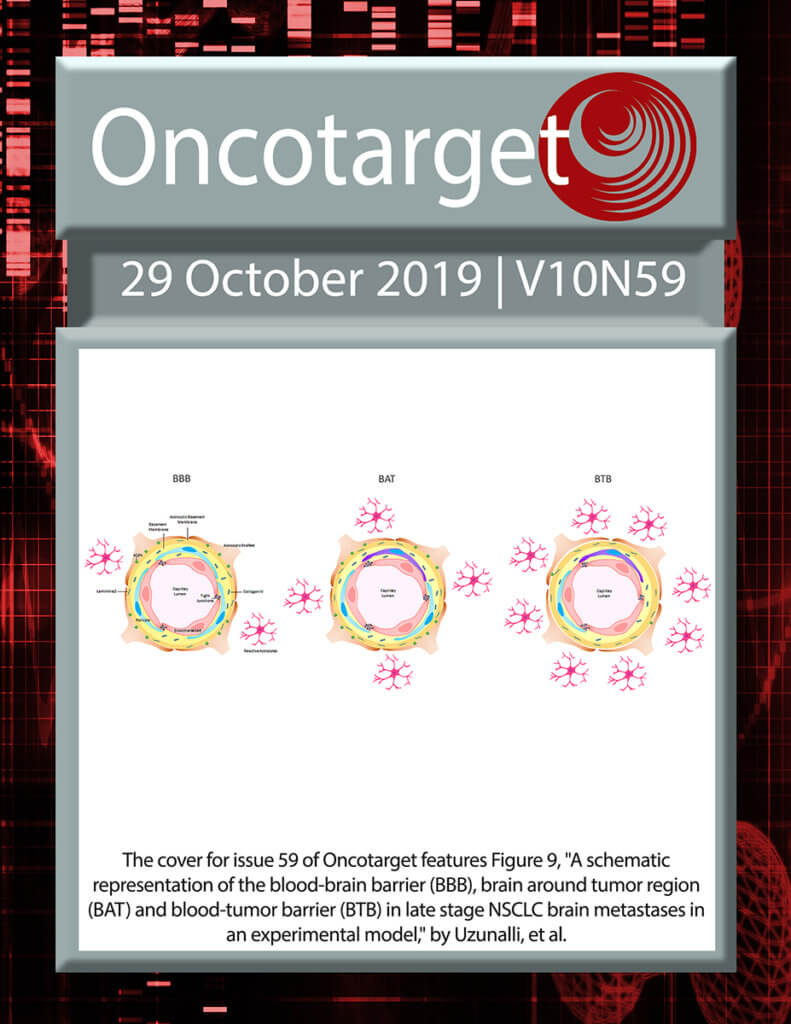
The most recently published research by the Comparative Blood-Brain Barrier Laboratory (CBBBL) in Purdue Veterinary Medicine’s Department of Comparative Pathobiology, was featured on the cover of Oncotarget, a peer-reviewed bio-medical journal. Dr. Gozde Uzunalli, postdoctoral research associate, was the first author of the article, which highlighted how the blood-brain barrier transitions into the blood-tumor barrier when it is disturbed by cancer cells. “We hope to be able use these results to increase drug delivery to metastatic brain lesions,” said Dr. Uzunalli, who has received two postdoctoral awards for her work at the CBBBL.
The research was led by Dr. Tiffany Lyle, assistant professor of veterinary anatomic pathology, whose work focuses on the pathology of the blood-brain barrier. As the principal investigator of the Comparative Blood-Brain Barrier Laboratory, she and her team have collaborated with other scientists at Purdue as well as the Indiana University Simon Cancer Center.

The CBBBL research has provided the first comprehensive characterization of both the blood-brain and blood-tumor barriers in brain metastases of lung cancer, which will serve as a road map for treatment development. “Brain metastases occur most frequently in patients diagnosed with breast and lung cancer and melanoma,” Dr. Lyle said. “These metastases have a devastating survival rate, mostly because it’s so difficult to get drugs into the brain tissue because of the blood-brain barrier.”
The transition of the blood-brain barrier into the blood-tumor barrier presents a roadblock for effective drug delivery to the brain. The formation of the blood-tumor barrier has been insufficiently characterized in lung cancer until now, Dr. Lyle explained.
“We wanted to see what changes in the blood-brain barrier were occurring rapidly and which ones were sustained over time,” Dr. Lyle said. “Identifying those changes and pinpointing when they occur during the transition will be critical to developing treatment plans and being able to identify where, and when, cancer cells need to be targeted.”
Click here to read a complete news release about the research.
